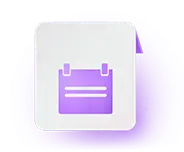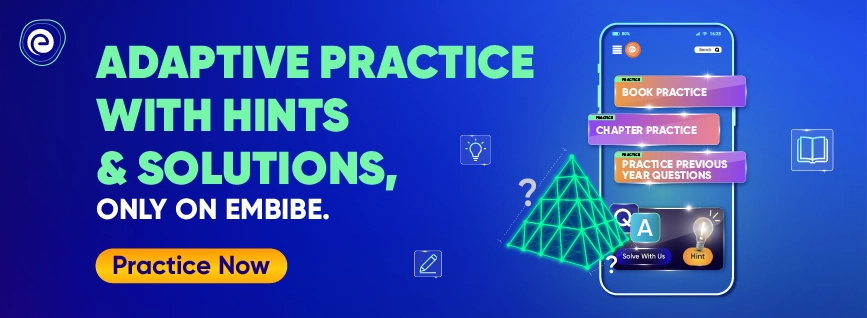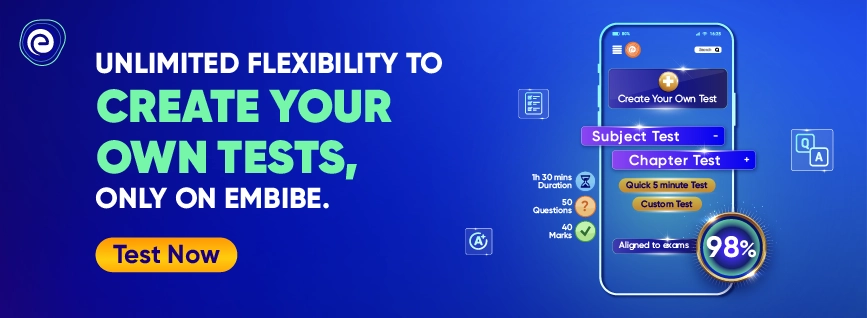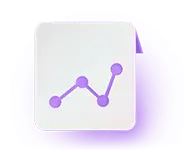- Written by Bhavani_Singh
- Last Modified on 18-11-2024
About Karnataka Board Class 7 Exam 2025
Karnataka School Examination and Assessment Board(KSEAB) is the principal educational institution in Karnataka and is headquartered in Bangalore. It is a state education board in Karnataka and is responsible for administering 10th (SSLC), 12th (PUC) and other state-level exams. KSEAB is responsible for various aspects of schooling and administration of the secondary education system in the state.
Class 7 is a critical stage in a student’s learning process. It is the stepping stone for students to move ahead to higher classes. The concepts students learn in class 7 will be discussed in-depth in higher classes. This article discusses the Karnataka Board Class 7 exam in detail. Keep reading to learn more about the exam and other relevant details like the syllabus, preparation tips, and more.
Karnataka Board Class 7 Exam Summary 2025
Class 7 is a school-level exam conducted at the respective schools by following the guidelines and rules set by the board. The Karnataka Board Class 7 exam is conducted annually and the exam dates and result dates are decided by the school itself. The board follows the Continuous and Comprehensive Evaluation for Class 7 and the exam duration is 3 hours. Before getting into the details of KSEAB Class 7, let us have a look at some of the important details regarding the Karnataka Board Class 7 exams:
|
Exam Name
|
Karnataka Board Class 7
|
|
Exam Conducting Body
|
Karnataka School Examination and Assessment Board, KSEAB
|
|
Academic Year
|
2024-25
|
|
Mode of Examination
|
Pen and paper (Offline)
|
|
Frequency of Exam
|
Annual
|
|
Medium of Examination
|
Kannada, Hindi, English & Urdu Medium
|
|
Name of the Subjects
|
English, Hindi, Mathematics, Kannada, Physical Education, Science, Social Science, Drawing etc.
|
|
Duration
|
3 Hours
|
Karnataka Board Official Website Link
https://kseab.karnataka.gov.in/english
Karnataka Board Class 7 Exam Pattern 2025
The board follows the Continuous and Comprehensive Evaluation system introduced by CBSE to evaluate students of Class 7. According to the CCE, the exams are of two types – Formative Assessment and Summative Assessment. These two assessments are helpful in identifying students’ progress and areas of improvement.
The formative assessment consists of students’ class performance, self-learning, activities and worksheet submissions, etc. A summative assessment is a one-time activity. The assessment takes place not during the learning process but at the end. The purpose of formative assessment is to monitor and evaluate the learner’s progress, and summative assessment evaluates the learner’s achievements.
Karnataka Board Class 7 Exam Pattern Details – Scoring pattern (+/- Marking) 2025
The Karnataka Secondary Education Examination Board (KSEAB) conducts the 7th standard Formative Assessment (FA) and Summative Assessment (SA) before final exams in the respective schools. The Karnataka State Board students will have four formative assessments (internal exercise) and two summative exams for the current academic year 2025. The CCE pattern followed for Class 7 is as shown below:
|
No.
|
Name of CCE Activity
|
Code of the CCE Activity
|
Activities
|
Marks
|
|
1
|
Formative Assessment – 1
|
FA1
|
Activity 1 + Activity 2 + Written Test
|
15+15+20=50
|
|
2
|
Formative Assessment -2
|
FA2
|
Activity 1 + Activity 2 + Written Test
|
15+15+20=50 Marks
|
|
3
|
Summative Assessment -1
|
SA1
|
Written Exam
|
80 Marks
|
|
4
|
Formative Assessment – 3
|
FA3
|
Activity 1 + Activity 2 + Written Test
|
15+15+20=50 Marks
|
|
5
|
Formative Assessment – 4
|
FA4
|
Activity 1 + Activity 2 + Written Test
|
15+15+20=50 Marks
|
|
6
|
Summative Assessment – 2
|
SA2
|
Written Exam
|
80 Marks
|
Karnataka Board Class 7 Exam Syllabus 2025
The syllabus is designed to help students familiarise themselves with all important topics in all subjects. Provides an overview of all important topics for a given subject. Knowing the syllabus is the first important thing for students to prepare for the exam.
Class 7 students are expected to familiarise the syllabus of all the subjects before going ahead with the learning process. With the help of the syllabus, students get their course-related information and become mentally prepared to handle their whole academic challenges..
Karnataka Board Class 7 Mathematics Syllabus
Class 7 Maths forms the foundation for the concepts that are applicable in higher classes. Therefore, students should be well adept with the concepts and practice rigorously. The first step to do so is by going through the syllabus properly. Students can check the Karnataka Board Class 7 Maths syllabus below:
|
Chapter Number
|
Chapter Name
|
|
Chapter 1
|
Integers
|
|
Chapter 2
|
Fractions and Decimals
|
|
Chapter 3
|
Data Handling
|
|
Chapter 4
|
Simple Equations
|
|
Chapter 5
|
Lines and Angles
|
|
Chapter 6
|
The Triangle and its Properties
|
|
Chapter 7
|
Congruence of Triangles
|
|
Chapter 8
|
Comparing Quantities
|
|
Chapter 9
|
Rational Numbers
|
|
Chapter 10
|
Practical Geometry
|
|
Chapter 11
|
Perimeter and Area
|
|
Chapter 12
|
Algebraic Expressions
|
|
Chapter 13
|
Exponents and Powers
|
|
Chapter 14
|
Symmetry
|
|
Chapter 15
|
Visualising Solid Shapes
|
Karnataka Board Class 7 Science Syllabus
Class 7 Science deals with topics like Nutrition in Plants, Heat, Soil, and many more. Students should know the syllabus to prepare for the exam in a better way. Based on the syllabus, students should plan their further studies. The Science syllabus for Karnataka Board Class 7 is as follows:
|
Chapter No.
|
Chapter Name
|
|
Chapter 1
|
Nutrition in Plants
|
|
Chapter 2
|
Nutrition in Animals
|
|
Chapter 3
|
Fabric to Fabric
|
|
Chapter 4
|
Heat
|
|
Chapter 5
|
Acids, Bases & Salts
|
|
Chapter 6
|
Physical and Chemical Changes
|
|
Chapter 7
|
Weather, Climate & Adaptation of Animals to Climate
|
|
Chapter 8
|
Winds, Storms & Cyclone
|
|
Chapter 9
|
Soil
|
|
Chapter 10
|
Respiration in Organisms
|
|
Chapter 11
|
Transportation in Animals & Plants
|
|
Chapter 12
|
Reproduction in Plants
|
|
Chapter 13
|
Motion & Time
|
|
Chapter 14
|
Electric Current & its Effects
|
|
Chapter 15
|
Light
|
|
Chapter 16
|
Water: A Precious Resource
|
|
Chapter 17
|
Forests: Our Lifeline
|
|
Chapter 18
|
Wastewater Story
|
Karnataka Board Class 7 Social Science Syllabus
Class 7 Social Science is divided into History, Geography, and Civics. And students should be thorough with all the chapters in the subject. Students are advised to go through the syllabus properly and then plan their studies. The table below provides the Karnataka Board Class 7 Social Science syllabus:
|
Chapter Number
|
Chapter Name
|
|
Karnataka State Syllabus Class 7 Social Science History
|
|
Chapter 1
|
Vijayanagara Empire
|
|
Chapter 2
|
Bahamani Adil Shah’s
|
|
Chapter 3
|
Bhakthi Cult and Sufi Heritage
|
|
Chapter 4
|
Nayakas, Palegaras and Naada Prabhus
|
|
Chapter 5
|
Wodeyars of Mysuru
|
|
Chapter 6
|
The Sultans of Delhi
|
|
Chapter 7
|
The Mughal Empire
|
|
Chapter 8
|
Marathas
|
|
Chapter 9
|
Advent of the Europeans to India
|
|
Chapter 10
|
Rise of British Political Supremacy in India
|
|
Chapter 11
|
Impact of the British Rule
|
|
Chapter 12
|
Social and Religious Reforms
|
|
Chapter 13
|
Freedom Struggle
|
|
Chapter 14
|
Pro-People Movements of Karnataka
|
|
Chapter 15
|
Karnataka-Economic and Social Transformation
|
|
Chapter 16
|
Womendom Fighters
|
|
Chapter 17
|
Integration of Karnataka and Border Disputes
|
|
Karnataka State Syllabus Class 7 Social Science Civics
|
|
Chapter 18
|
Our Constitution
|
|
Chapter 19
|
Fundamental Rights and Duties
|
|
Chapter 20
|
Directive Principles of State Policy
|
|
Chapter 21
|
Our Defence Forces
|
|
Chapter 22
|
Constitutional Amendment
|
|
Karnataka State Syllabus Class 7 Social Science Geography
|
|
Chapter 23
|
North America – Land of Prairies
|
|
Chapter 24
|
South America – Land of Andes
|
|
Chapter 25
|
Australia – The Flattest Continent
|
|
Chapter 26
|
Antarctica – The White Continent
|
Karnataka Board Class 7 English Syllabus (First Language)
English is one of the language subjects offered in the Karnataka Board Class 7 curriculum. Students can choose English as their first language and second language. The syllabus is design to develop good English reading and writing skills in students. The syllabi for both the options are given in the table below.
KSEAB Class 7 English Syllabus(First Language)
The following are the important topics that must be studied by the students of Class 7 under the First Language subject:
|
Chapter Number
|
Chapter Name
|
|
Chapter 1
|
A Tiger in the House
|
|
Chapter 2
|
A Soldier’s Son
|
|
Chapter 3
|
A Letter from a Mother
|
|
Chapter 4
|
The Blind Dog
|
|
Chapter 5
|
India through the Eyes of a Foreigner
|
|
Chapter 6
|
Uttanka’s Gurudakashina
|
|
Chapter 7
|
A Tribute to Netaji
|
|
Chapter 8
|
The Town by the Sea
|
|
Poems
|
|
Poem Number
|
Poem Name
|
|
1.
|
Self-Reliance
|
|
2.
|
If
|
|
3.
|
Meadow Surprises
|
|
4.
|
Sonnet
|
|
5.
|
The Solitary Reaper
|
|
6.
|
The Road not taken
|
|
7.
|
Work is Worship
|
|
8.
|
The Convergence of the Twain
|
|
Supplementary Reading
|
|
Chapter 1
|
Suvarnasiddhi and Chakradhara
|
|
Chapter 2
|
The Dream
|
|
Chapter 3
|
A Day’s Wait
|
KSEAB Class 7 English Syllabus(Second Language)
The following are the important topics that must be studied by the students of class 7 under the Second Language subject:
|
Chapter Number
|
Chapter Name
|
|
Chapter 1
|
Healthy Life (Pedro Pablo Sacristan)
|
|
Chapter 2
|
Avoid Plastics
|
|
Chapter 3
|
Ekalavya
|
|
Chapter 4
|
Leg Trap (Manorama Jafa)
|
|
Chapter 5
|
The Wonder Bowl
|
|
Chapter 6
|
Journey to the Top
|
|
Chapter 7
|
Nest with Grandparents (Lalitha Sridhar)
|
|
Chapter 8
|
Wealth and Values
|
|
Poems
|
|
Poem Number
|
Poem Name
|
|
1.
|
The Gymnastic Clock (M. C Davies)
|
|
2.
|
Awareness (Sylvia Stults)
|
|
3.
|
Why God Made Teachers (Kevin William Huff)
|
|
4.
|
Froth and Bubble (Adam Lindsay Gordon)
|
|
5.
|
About Ben Adhen (Leigh Hunt)
|
|
6.
|
Mountain Climbing (Laura Howell Horner)
|
|
7.
|
Dear Grandma and Grandpa (Kevin William Huff)
|
|
8.
|
The Quarrel (Eleanor Forjeon)
|
|
Supplementary Reading
|
|
Chapter 1
|
The Never-Ending Story
|
|
Chapter 2
|
Pandora’s Box
|
|
Chapter 3
|
A Birthday Present Nehru to his Daughter
|
Karnataka Board Class 7 Study Plan to Maximise Score 2025
A detailed and well-planned study plan helps students understand basic concepts and improve their overall performance. It allows students to follow a systematic way to learn and practice their concepts leaving them with ample time for revision. To help students ace their exam, we have provided some preparation tips and a detailed study plan in the section below:
Karnataka Board Class 7 Preparation Tips
Preparation tips are like grease that makes the learning process smoother and easier. Following them can ensure that students perform well in the exam. Below are some preparation tips that students can refer to:
- Create a proper study plan by allocating at least 1.5 hours for each subject.
- Students should strive to recognise their own weaknesses and strengths in order to plan their preparation.
- Make a list of key points and use flowcharts and diagrams to help you understand the material.
- All distracting devices such as mobile phones and laptops should be removed from the study area while studying.
- Students should clear all their concepts. They can refer to their textbooks or 3D videos on Embibe to understand the concepts better.
- Make a list of key points and use flowcharts and diagrams to help you understand the material.
- Students should practice questions at the end of each chapter to understand better. They can also practice on Embibe.
- Complete the whole syllabus and revise all subjects one month before the exam. They can take tests on Embibe after completion of the subject’s syllabus or even a chapter.
Karnataka Board Class 7 Detailed Study Plan
Students need a well-planned study plan and proper guidance to prepare for Class 7 exam. This is because it will help them study systematically and finish the syllabus on time. Below mentioned is a detailed study plan that students can follow to ace the exams:
- It is preferable to follow a daily schedule that gives equal weight to all subjects.
- Dedicate at least 5-6 hours a day to learn the concepts and do some practicing.
- Since Mathematics has many numerical problems, students can allocate at least two hours of study each day.
- Students can study Science and Social Science for at least 1.5 hours a day.
- Literature subjects can be studied for one hour per day.
- A continuous study without breaks is not recommended. Take short breaks between 1-2 hours of study. These will help students relax and refocus on their next topic.
FAQs on Karnataka Board Class 7 2025
Below are some frequently asked questions about the Karnataka Board Class 7 exam:
Q: Where can I get the Karnataka Board Class 7 syllabus?
Ans: Students can get the Karnataka Board Class 7 syllabus on this page.
Q: Where can I practice questions for Karnataka Board Class 7 Science?
Ans: Students can practice as many questions as they want on Embibe for the Karnataka Board Class 7 Science.
Q: Where can I take the KSEAB Class 7 mock tests?
Ans: Embibe provides mock tests for Maths and Science for KSEAB Class 7.
Q: How can I prepare for the KSEAB Class 7 exam?
Ans: Students can prepare for the KSEAB Class 7 exam by referring to their textbooks or Embibe to learn their concepts. They can then practice questions and take tests or revise to have complete preparation for the exam.
Q: What is the benefit of taking KSEAB Class 7 mock tests on Embibe?
Ans: The mock tests on Embibe are available for the entire subject or chapter-wise and can also be customised by students depending on their choice. Also, after every test students get detailed feedback to help them improve their performance and score well in the exam.
List of Educational Institutions for KSEAB Class 7 2025
There are many schools affiliated with Karnataka Board that offers secondary education to students. Chhosing the right school can help students develop their skills and enhance their abilities. The following are some secondary schools affiliated with the Karnataka School Education and Assessment Board.
- Government High School, Adagal
- Government Boys High School, Kodandaramapura
- Government Girls High School, Malleshwaram
- Morarji Desai Residential School (In each taluk of Karnataka)
- Kittur Rani Chennamma Residential School (In each taluk of Karnataka)
- St. Joseph’s Boys High School, Bangalore
- K.G.B.V. School, Jamkhandi
- Government Girls High School AnekalAnekal Town
- Government High School, Badagaon
- Government High School, B Bagewadi
- D.K.Z.P. Government High School, Jokatte
- Government High School, Settlement Betageri – Gadag
- Government High School, Kotagera
- GPUC Brahmavar Varambally
The complete list of schools in Karnataka can be accessed in the link: Schools in Karnataka. This link populates the state’s school list in a block-by-block fashion.
Future Exams After Karnataka Board Class 7 2025
There are school-level exams to advance to the next grade. Based on Continuous Overall Evaluation (CCE), the student progresses from her 7th grade to her 8th grade. Apart from this school-level exam, there are many competitive exams held nationally and internationally each year. Some of the competitive exams to which grade 7 students can appear are
- National Talent Search Examination (NTSE): Students’ knowledge and understanding of Science, Math, Social Science, Mental Ability, and General Knowledge are assessed. Scholarships and cash prizes help qualified students move on to the next academic year.
- National Level Science Talent Search Exam (NLSTSE): The exam consists of subjects like Maths, Physics, Chemistry, Biology, and other general awareness questions are included.
- Indian National Olympiad (INO): The syllabus includes Physics, Chemistry, Biology, Astronomy and Junior Science. This exam contains a five-stage procedure. The initial stage is the written exam conducted by NSE (National Standard Examination).
- GeoGenius: This exam aims to create interest in geography. In this exam, students are asked to mark the various locations of India on a blank map.
- National Interactive Maths Olympiad (NIMO): This exam tests and analyses the mental ability and mathematical skill.















































